Here’s an ideal world according to a nutritionist: everyone loves healthy foods that taste better than junk food, companies care about the ingredients in their food and avoid disgusting additives, and prescriptions are written for natural supplements instead of chemicals.
I know what you’re thinking. Why don’t you add rainbows and guilt-free desserts to that world too?
Ok, so my ideal world isn’t quite here yet. But the good news is that we can control a few of these issues.
For instance, we can always choose to eat whole, nutritious foods instead of nutritionally devoid processed food. We can also learn about sneaky food labeling tricks that sabotage our health goals.
And sometimes natural supplements actually work better than prescription drugs.
Now if you’re as skeptical as I am, you’re probably thinking that effective natural supplements are as elusive as unicorns and guilt-free desserts.
But the supplement market is no joke. “Some industry analysts expect the nutrition supplement market to reach $175 billion globally by 2020.”
While there are definitely marketing scams to stay away from (detox kits anyone?), today we’re going to talk about 10 natural supplements that are as effective as prescription drugs according to science-backed evidence.
Are you curious to see what made the cut? Let’s get started!
Turmeric
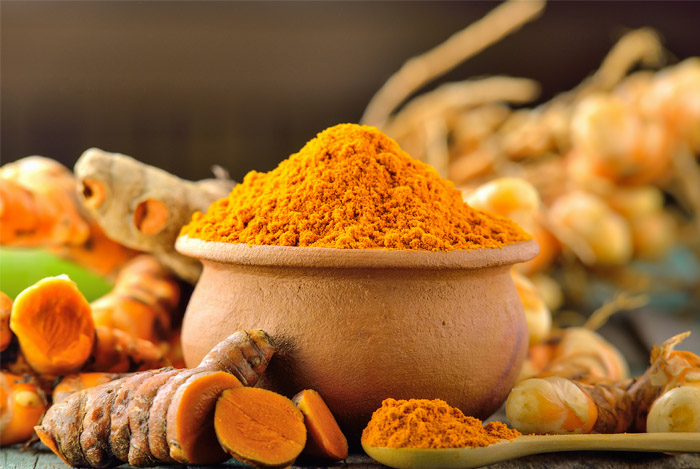 Turmeric may be one of the most powerful natural remedies currently in existence.
Turmeric may be one of the most powerful natural remedies currently in existence.
This all-around amazeball has been known to provide at least 12 awesome health benefits ranging from easing depression to reducing cholesterol.
But turmeric’s best known attribute?
Reducing inflammation.
When curcumin, the active constituent in turmeric, was tested against common nonsteroidal anti-inflammatory drugs (NSAIDs), such as aspirin, ibuprofen, and naproxen, the results indicated that curcumin was a more potent anti-inflammatory when compared to aspirin and ibuprofen, which were the “least potent.”
More than 3 million people suffer from osteoarthritis (OA), which is the most common type of arthritis.
Turning to pain medications can be addictive and cause side effects such as “stomach upset, ringing in your ears, cardiovascular problems, bleeding problems, and liver and kidney damage.”
So scientists from one study sought to determine if curcumin extracts would reduce pain and improve functionality in patients with OA in their knees.
They gave half of their 107 participants ibuprofen every day while the other half received extracts of curcumin daily for six weeks.
The participants’ pain was measured when walking and going up and down flights of stairs, normally very painful activities for those with knee OA.
The results?
There was no difference in pain between the patients receiving ibuprofen and the curcumin extract, which lead researchers to conclude that curcumin seems be just as effective for knee OA as ibuprofen.
Cinnamon
 Cinnamon comes from the bark of trees and has been widely used as a medicinal remedy in Asia.
Cinnamon comes from the bark of trees and has been widely used as a medicinal remedy in Asia.
Studies show that cinnamon may actually lower fasting blood glucose and help those suffering from type 2 diabetes.
“Yes, it does work,” says Paul Davis, a research nutritionist with the University of California, Davis, to NPR.
Davis authored a meta-analysis published in the Journal of Medicinal Food that discovered that cinnamon lowers fasting blood glucose by “a modest effect of about 3 to 5 percent.”
He notes that this reduction is similar to reduction levels achieved with older generation diabetes drugs.
While this may not be a feasible way for current diabetics to manage their blood sugar yet, the 80 million people — close to 1 in 4 of us — who are prediabetic and have elevated fasting blood glucose levels could use cinnamon to prevent a type 2 diabetes diagnosis.
Researchers add that most cinnamon at the grocery store is from the cassia variety, which contains high levels of naturally occurring coumarin. When eaten in large amounts, say over a teaspoon a day for those especially sensitive, it may harm your liver.
Ceylon cinnamon, which is milder and a bit more expensive, may be a better option since it comes from a different tree and hasn’t shown any adverse effects.
Berberine
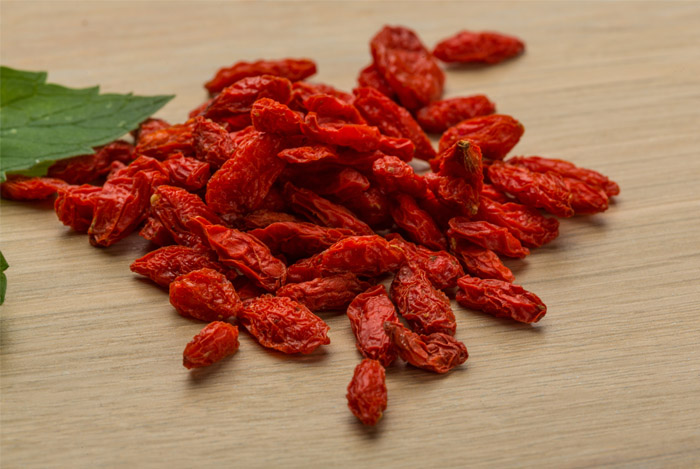 When you have type 2 diabetes, your blood sugar levels become elevated due to insulin resistance.
When you have type 2 diabetes, your blood sugar levels become elevated due to insulin resistance.
Many type 2 diabetics turn to blood sugar regulating drugs, balanced low sugar diets, and exercise to help them reduce their medications.
But berberine may be a supplement to help diabetics lower their blood sugar levels naturally.
Researchers discovered that patients taking berberine had decreases in:
- Blood sugar levels
- Fasting blood glucose levels
- Total cholesterol
- LDL cholesterol
Scientists from one study discovered that when 100 participants with type 2 diabetes took berberine for three months, they decreased their fasting glucose levels so much that it resulted in some patients going from diabetic levels back to normal levels.
Can you believe that?
It actually gets better.
Scientists wanted to see if berberine truly compared to prescription drugs for diabetes. So they studied 36 newly diagnosed type 2 diabetics as they took either berberine or metformin, a popular drug for diabetes, for three months.
The results?
The berberine treatment worked just as well as the metformin did. Researchers stated that “berberine is a potent oral hypoglycemic agent with beneficial effects on lipid metabolism.”
Plus, there’s “little documentation of adverse effects in humans” using berberine, which positions it as an effective way to treat type 2 diabetes.
Conversely, metformin’s side effects include, but are definitely not limited to: tummy discomfort, heartburn, painful or difficult urination, metallic taste in the mouth, bloating, muscle cramps, vomiting, diarrhea, sleepiness…you get the point.
Berberine supplements even cost less than most blood sugar lowering drugs, so it’s a perfect candidate for lower income diabetes sufferers.
Green Tea
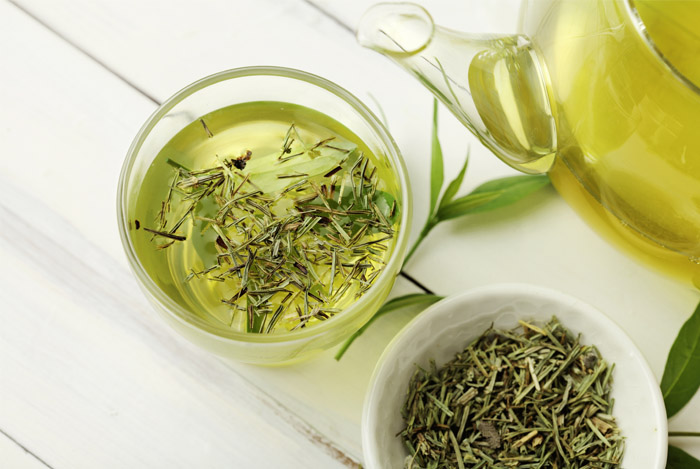 People have been drinking tea for centuries and it’s no surprise why: green tea is the healthiest drink in the world.
People have been drinking tea for centuries and it’s no surprise why: green tea is the healthiest drink in the world.
Green tea is so wonderful due to the main polyphenol in green tea – epigallocatechin gallate (EGCG). This polyphenol is a powerful antioxidant that neutralizes free radicals and even reduces some of the damage they cause.
Dr. Mercola mentions a study from Sweden’s Karolinska Institute about EGCG’s effects on diabetes.
Moderately and severely diabetic mice were fed EGCG or GlaxoSmithKline’s diabetes drug Avandia for 10 weeks. They had their blood sugar and insulin levels tested before and after the treatment.
While severely diabetic mice didn’t benefit as much from the EGCG as the prescription medicine, the moderately diabetic mice “did just as well on the green tea extract as they did on Avandia.”
As if that’s not amazing news, when the researchers examined the mice’s pancreas’, they learned that EGCG “preserved insulin-producing tissue and limited damage that could worsen diabetes.”
That means benefits without deadly side effects – score!
Red Yeast Rice
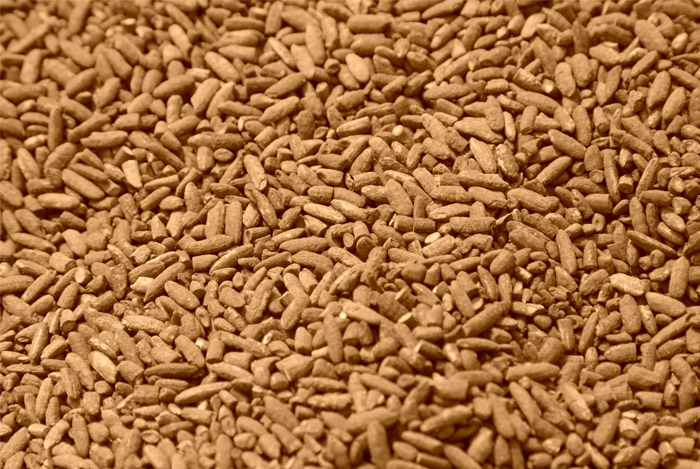 A dietary staple in some Asian cultures, red yeast rice (RYR) is made from yeast grown on rice.
A dietary staple in some Asian cultures, red yeast rice (RYR) is made from yeast grown on rice.
As the Mayo Clinic explains:
“RYR contains several compounds known as monacolins, which block the production of cholesterol. One of these, monacolin K, has the same structure as the drugs lovastatin and mevinolin.”
One study showed that when 446 participants with high cholesterol took RYR for 8 weeks, they:
- Reduced total cholesterol by 22.7%
- Dropped LDL, or ‘bad’ cholesterol, by 31%
- Decreased triglycerides by 34%
- Increased HDL, or ‘good’ cholesterol, by 20%
Red yeast stops the action of an enzyme in our bodies that helps make cholesterol so much so that it’s now being used in prescription medications.
Ginger
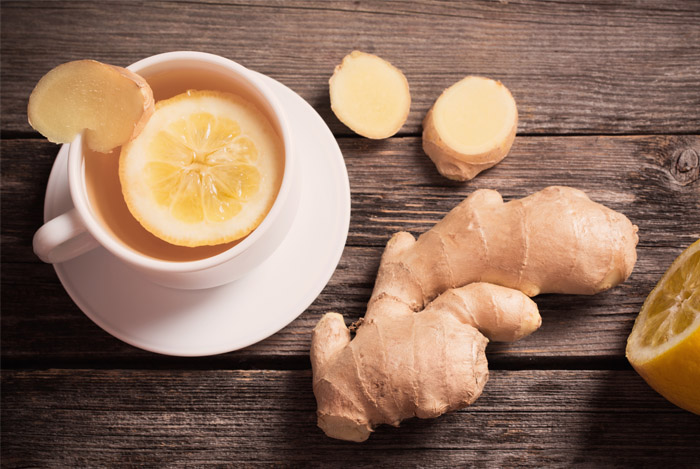 The sweet-smelling ginger rhizome has been a staple in homeopathic homes for centuries because it eases tummy discomfort and nausea.
The sweet-smelling ginger rhizome has been a staple in homeopathic homes for centuries because it eases tummy discomfort and nausea.
One review examined six separate studies testing to see if ginger was as powerful as over-the-counter anti-nausea medicine. Across the board, researchers discovered that taking ginger was “superior to [taking a] placebo and equally effective” as the OTC remedy.
You may want to pack some fresh ginger or ginger tea when you travel abroad instead of that weird pink stuff for tummy pain.
And if you’re prone to motion sickness while you travel, listen to this.
The researchers from one study on seasickness tested 80 naval cadets who weren’t used to sailing in heavy seas. They gave the participants an anti-nausea medicine, a placebo, or ginger root, and checked on their levels of seasickness every four hours.
Researchers not only discovered that “fewer symptoms of nausea and vertigo were reported after ginger root ingestion”, but “ginger root reduced the tendency to vomiting and cold sweating significantly better than [the] placebo did.”
You can appreciate those results even if you don’t get motion or seasick; ginger will always help your tummy out when it’s not feeling well.
That’s not all ginger can do; check out these other 12 amazing health benefits of ginger.
Chamomile
 You’ll typically sip on chamomile tea to ease tension and anxiety. You may even use it to help you fall and stay asleep fast, without the addictive properties of sleep aids.
You’ll typically sip on chamomile tea to ease tension and anxiety. You may even use it to help you fall and stay asleep fast, without the addictive properties of sleep aids.
But did you know that chamomile also eases PMS symptoms?
Many women report discomfort before or during their periods, ranging from physical pain to emotional imbalances. And if you’re dealing with PCOS, your PMS symptoms may be even worse.
Women usually turn to popular anti-inflammatory pain medications or prescriptions such as Mefenamic acid to make PMS symptoms go away.
But researchers from one study wanted to see if chamomile extract would provide the same relief.
They divided 90 female participants aged 18–35 into two groups: one received chamomile extract and the other was given Mefenamic acid. The women took their supplement three times a day starting on day 21 of their menstrual cycle and until their period came (about 7 days).
Researchers recorded the participants’ physical and psychological symptoms and instructed them to continue taking their prescribed supplements for their next two cycles.
The results demonstrated that the women taking the chamomile extract had significant reductions in both emotional symptoms and physical pain.
The chamomile was more effective at treating the psychological symptoms as Mefenamic acid and just as effective as the drug for physical pain.
St. John’s Wort
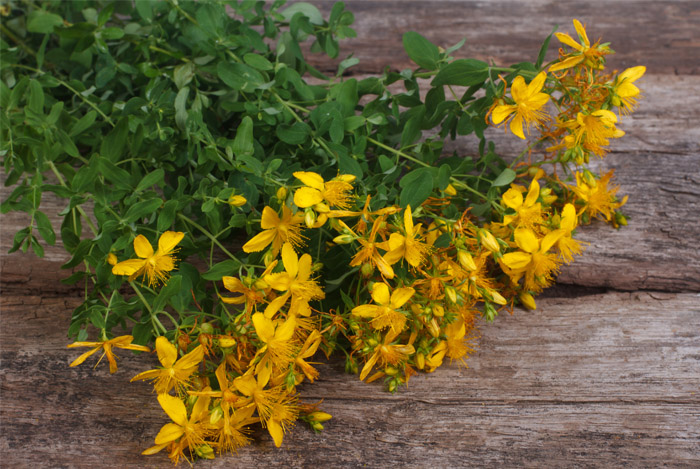 Using St. John’s wort (SJW) dates back to ancient Greece, where it was praised for its ability to treat anxiety, insomnia, and depression.
Using St. John’s wort (SJW) dates back to ancient Greece, where it was praised for its ability to treat anxiety, insomnia, and depression.
Now SJW is one of the most popular herbal products in the United States.
Most users with mild-to-moderate depression and anxiety like taking SJW to relieve their symptoms without the side effects caused by prescription antidepressants and anti-anxiety medications.
Studies suggest that the herb works similarly to selective serotonin reuptake inhibitors (SSRIs), the most common type of antidepressant, which includes fluoxetine (Prozac), citalopram (Celexa), and sertraline (Zoloft).
SJW may increase “the availability of the brain chemicals serotonin, dopamine, and norepinephrine. These neurotransmitters help improve mood.”
Researchers reviewed results from 29 trials including 5,489 participants who were randomly assigned either St. John’s wort, a placebo, tricyclic antidepressants, or SSRIs.
They discovered that:
“Overall, the St John’s Wort extracts tested in the trials were superior to placebo, similarly effective as standard antidepressants, and had fewer side effects than standard antidepressants.”
Sounds like a win to me.
Garlic
 If you’re following the DASH diet you know all about how good nutrition lowers high blood pressure.
If you’re following the DASH diet you know all about how good nutrition lowers high blood pressure.
But maybe you didn’t know that garlic also brings down blood pressure levels.
Scientists from one study divided participants with hypertension, or high blood pressure, into groups that received garlic extract tablets in 300 mg–1,500 mg doses, a placebo, or a medication prescribed for hypertension for 24 weeks.
Researchers discovered that patients taking the garlic extract significantly reduced both systolic and diastolic blood pressure when compared to the medication.
That’s pretty amazing; I can’t wait to see more studies like this.
Love keeping Dracula away? Check out these 9 other incredible health benefits of garlic.
Maca Root
 Maca root has long been considered as an aphrodisiac and libido-boosting supplement.
Maca root has long been considered as an aphrodisiac and libido-boosting supplement.
However, maca also appears to be a strong suppressor of enlarged prostates and may work even better than Finasteride, a synthetic drug that’s commonly prescribed to treat enlarged prostates.
The researchers from one study injected rats with testosterone to induce benign prostatic hyperplasia (BPH).
The rats were given red maca root or Finasteride to treat the enlarged prostates they grew.
Researchers learned that prostate weight “diminished” when the rats were treated with red maca and the effects were “better than [those] observed with Finasteride,” especially during the first 14 days.
Final Notes
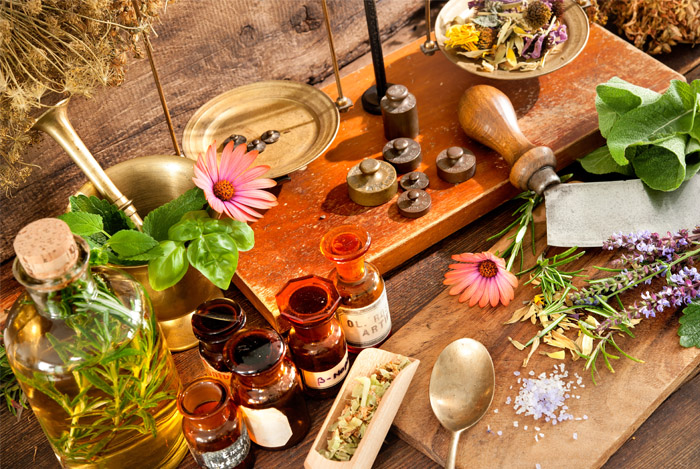 Think about that ideal world I mentioned earlier.
Think about that ideal world I mentioned earlier.
If we could all replace costly, side-effect ridden prescriptions with all-natural supplements that are not only effective, but cheaper, wouldn’t we all be a lot happier?
Next time you want to pop a pill for an ache or issue, check to see if there’s a natural alternative (backed by science, of course) to help you out instead.
As we can see from this list of 10 natural supplements, there’s a lot of secrets mother nature is just beginning to teach us about medicinal herbs.
Have you tried any of these supplements? Were you surprised to learn how effective some of them are? Share your thoughts with me in the comments!
The post 10 Natural Supplements that are as Effective as Drugs appeared first on Nutrition Secrets.
http://www.nutritionsecrets.com/natural-supplements-that-are-as-effective-as-drugs/
No comments:
Post a Comment